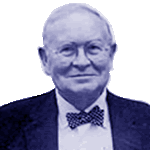Applied Ethics
Situation Ethics appears to be very similar to Act Utilitarianism. Fletcher talks of 'interests', a word with which many modern utilitarians such as Peter Singer would be comfortable. He wrote about the need to change the 'sanctity of life' ethic, which has recently been echoed by Peter Singer. The sorts of conclusions that Fletcher himself reached - about using organs from brain-stem dead infants, about when we become fully human and how this is a matter of degree - are indistinguishable from Singer's own comments.
Although they may reach the same destination, Fletcher and Singer take slightly different routes. Both are teleological, and are interested in outcomes. However, Fletcher was at pains to point out that situation ethics relativises the absolute (getting rid of absolute rules) and does not absolutise the relative (it doesn't make an absolute rule that "You must always do the most loving thing"). There is no principle of utility.
Situation ethics requires a positivist step of faith. Utilitarianism is justified by the empirical observation that humans desire pleasure and avoid pain, and therefore we should maximise pleasure for all people and minimise pain. There is no justification for 'love' - if anyone asks ' Why should I love?' there can be no answer.
Situation ethics puts people first (personalism). Singer and other utilitarians might disagree about what constitutes a person, and situation ethics may give significantly different answers about issues of animal rights.
Situation ethics says all actions must be pragmatic - they need to work. This is very close to the principle of utility. Ultimately, you answer ethical dilemmas by working out what the effects will be and by maximising the meeting of people's interests, as this is the most loving thing to do.

